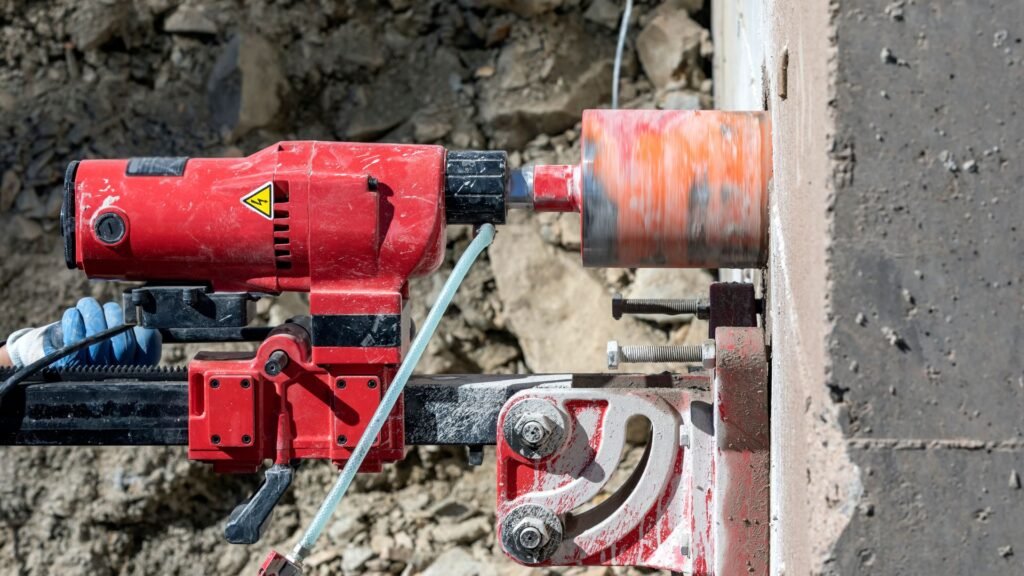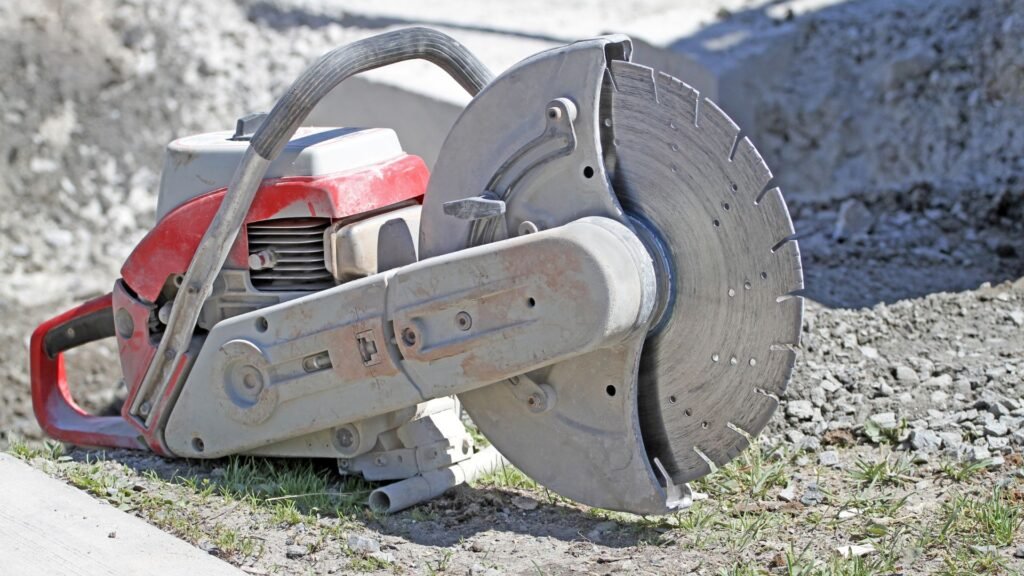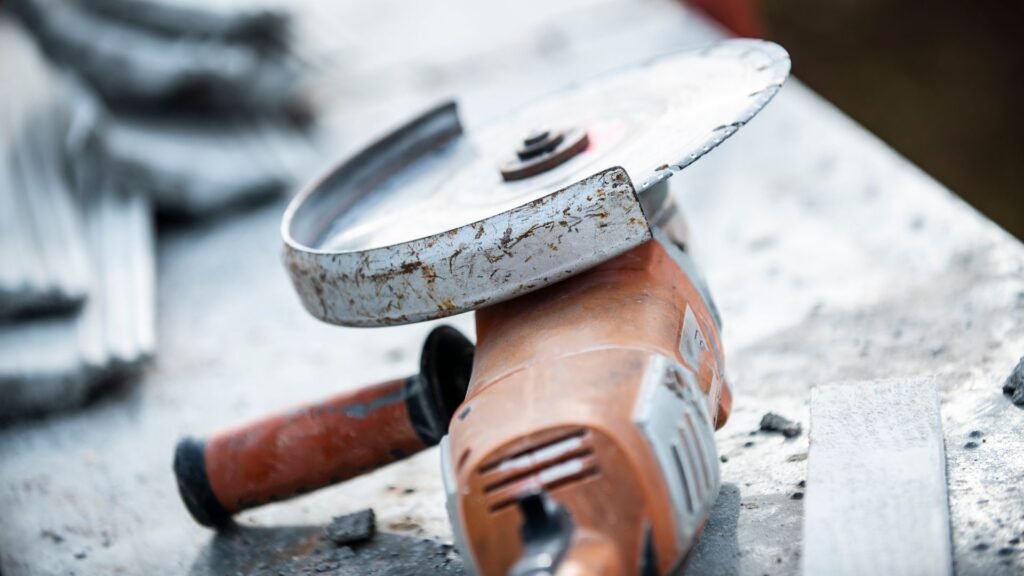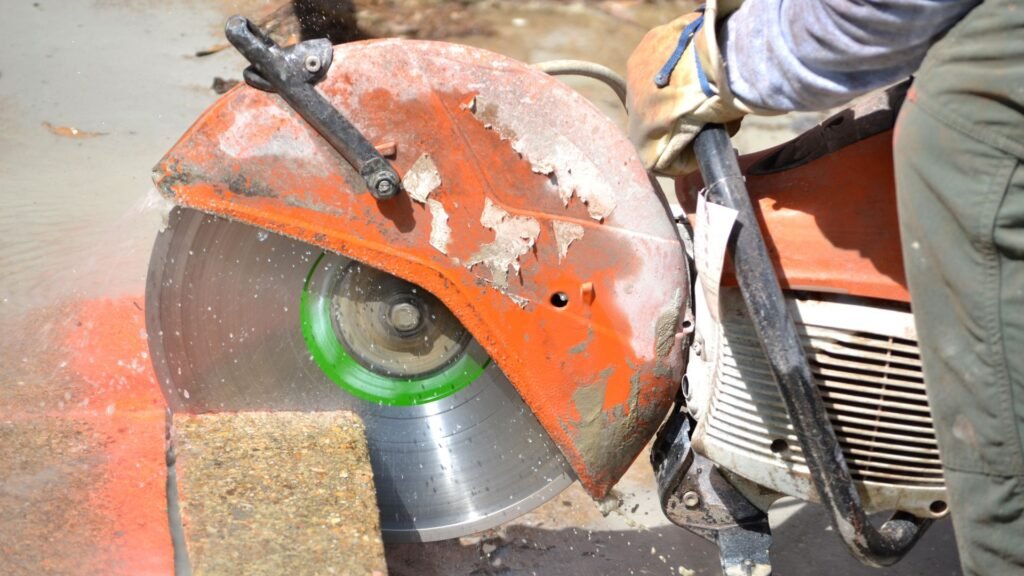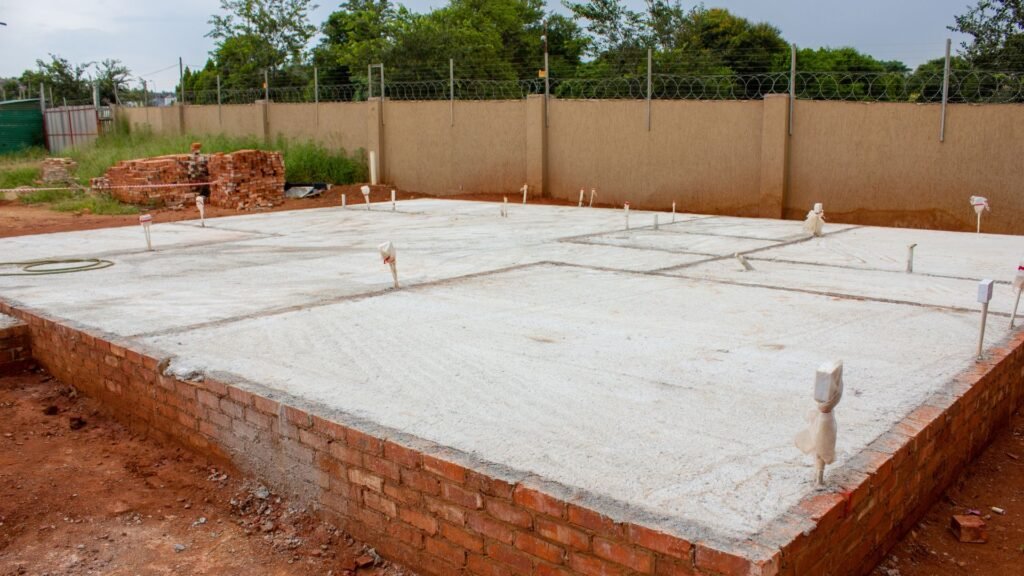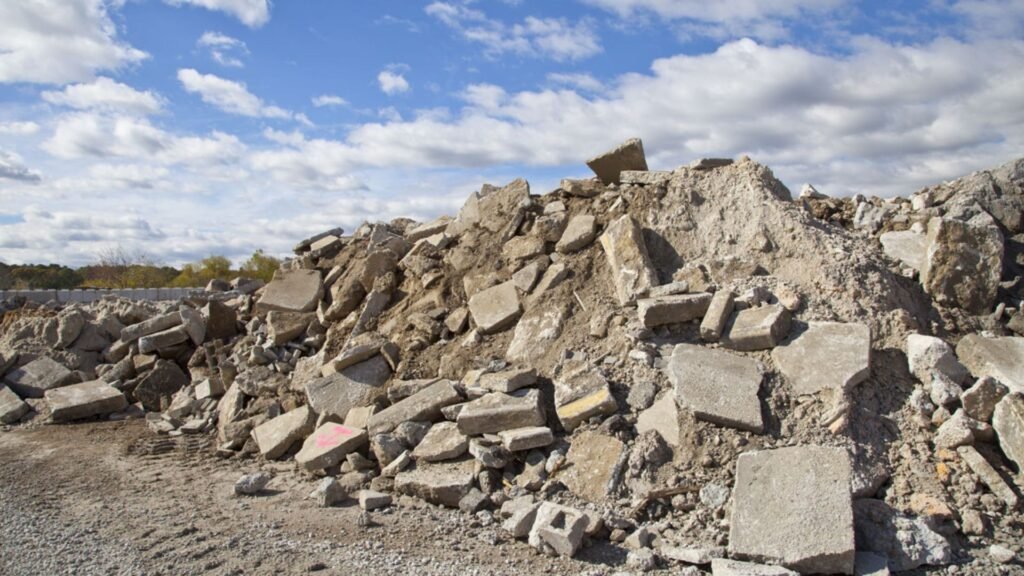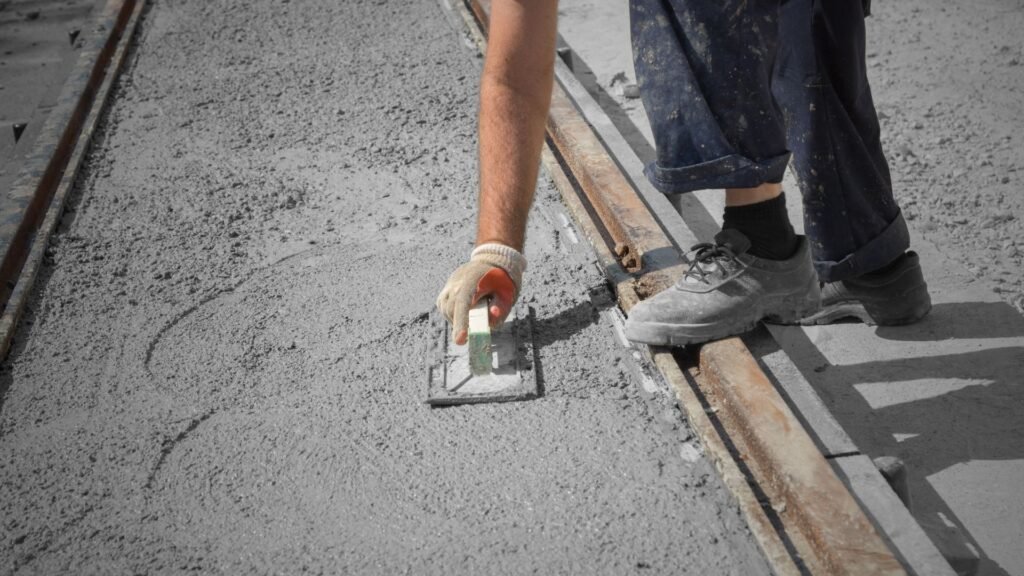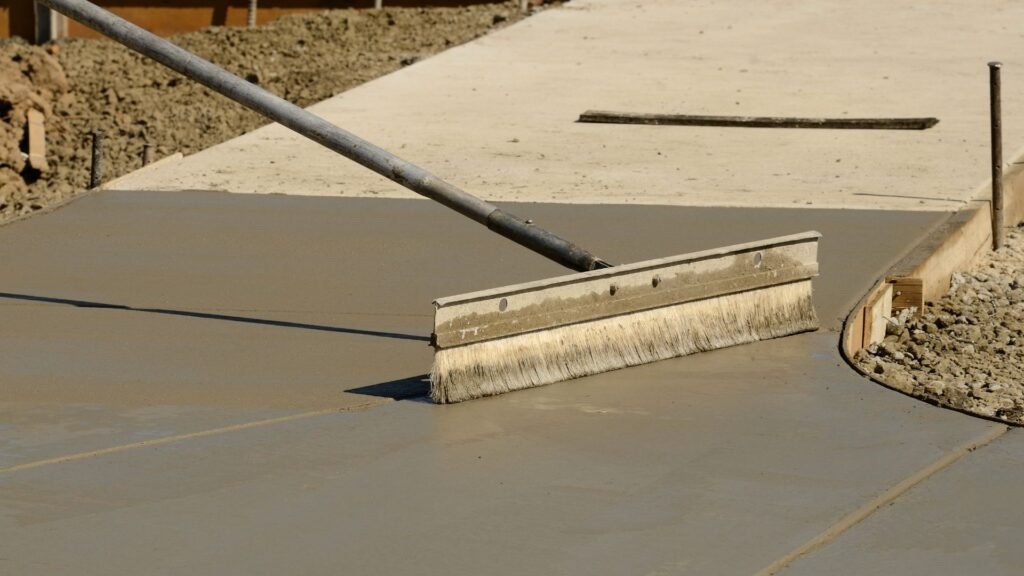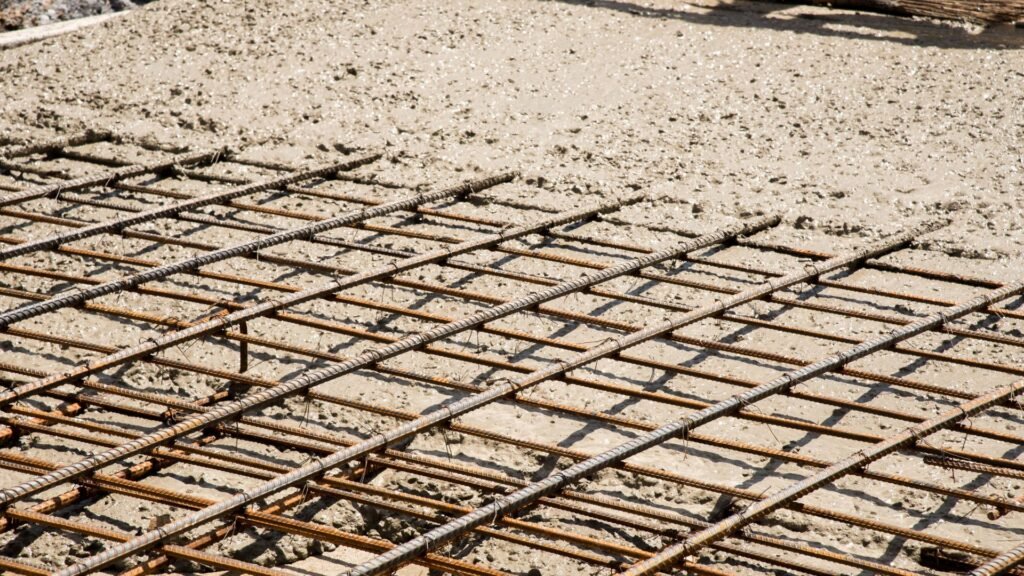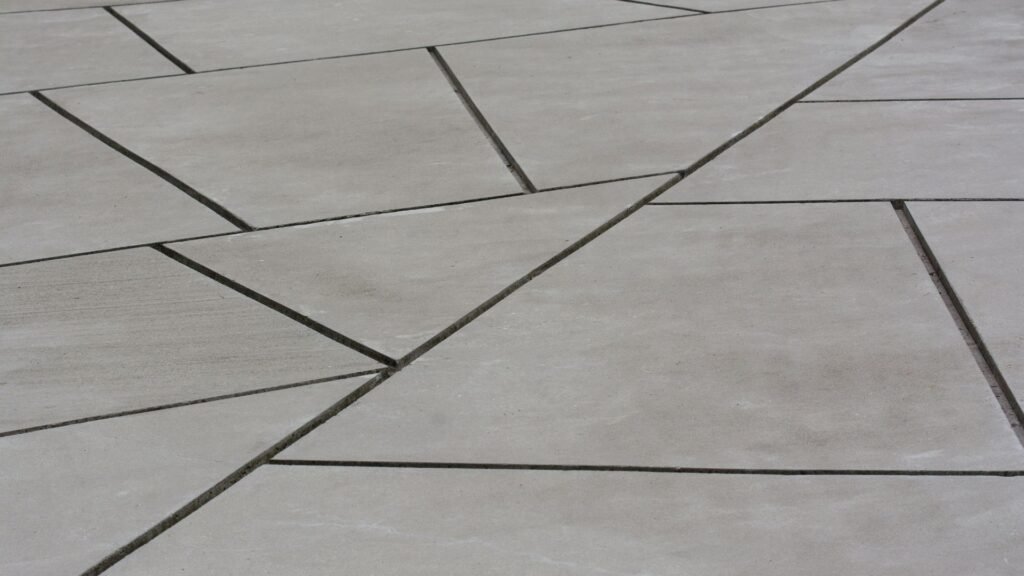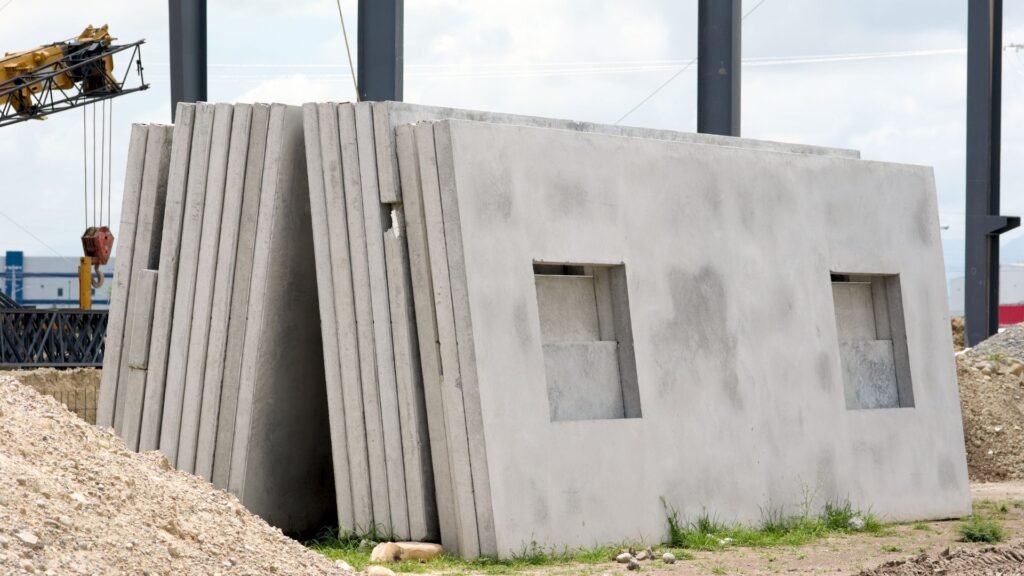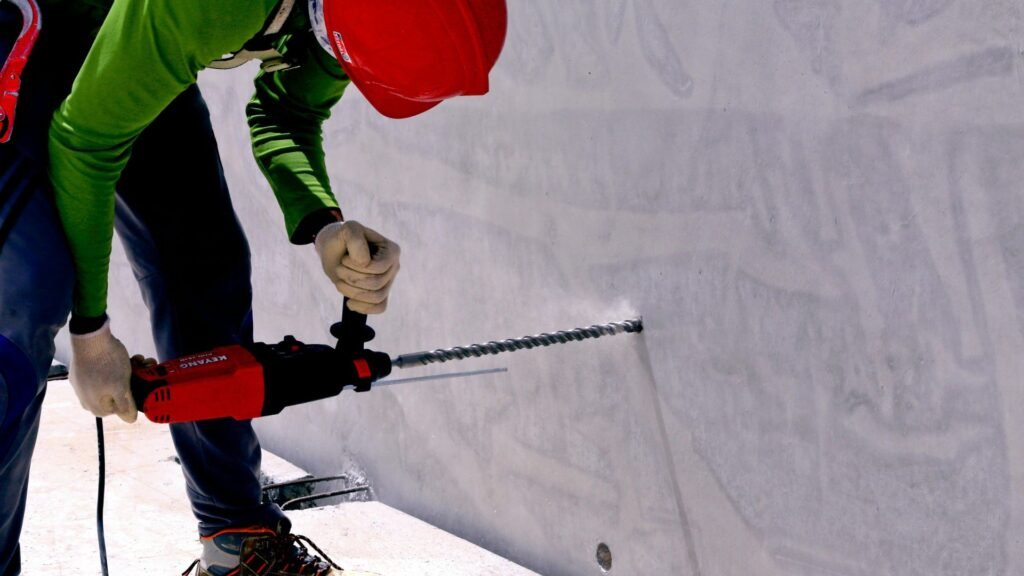Welcome to your go-to guide on understanding concrete drilling costs in New Zealand, where we’ll break down everything you need to know in simple terms. Whether you’re planning a small home project like installing a heat pump or tackling a larger construction job, knowing what to expect before calling a contractor can save you time, money, and stress. Concrete drilling is a common service across NZ, used for creating clean openings for plumbing, electrical wiring, ventilation, and renovations, but many homeowners and businesses are often unsure about how pricing works. In this article, we’ll explore the key factors that affect costs, give you ballpark figures for different types of drilling jobs, and share practical tips to help you choose the right service without overpaying. By the end, you’ll have a clear understanding of what drives concrete drilling costs in NZ and how to budget smartly for your project.
Concrete drilling cost in NZ typically ranges from $30–$60 for small holes, $60–$150 for medium holes, and $150–$300+ for large core drilling. Contractors may also charge $80–$120 per hour for labour, with prices varying by location, project size, and whether the concrete is reinforced. Always request detailed quotes, as extra fees like travel, waste removal, or urgent call-outs may apply.
Table of Contents
What Is Concrete Drilling
Concrete drilling is the process of creating clean, precise holes through concrete surfaces using power tools such as rotary hammers and diamond core drills. In simple terms, it’s how you make a neat opening in tough material so you can run a pipe, wire, or vent without cracking the slab or wall. A technician marks the spot, sets up the drill, and bores through the concrete at a steady speed. With core drilling, a hollow, diamond-tipped bit cuts a smooth cylinder, which is removed as a “core” to leave a round, accurate hole.
How it works step by step:
- Assess the location and mark the center point.
- Scan for rebar, post-tension cables, and hidden services to avoid damage.
- Choose the right bit diameter and depth for the job.
- Control dust with wet drilling or a vacuum system.
- Drill at a constant rate, remove the core, and clean the edges.
- Seal or sleeve the opening if needed to keep out moisture and pests.
Common uses include:
- Installing plumbing lines, waste pipes, and water inlets.
- Running electrical conduit, data cables, and cable trays.
- Creating openings for ventilation, rangehoods, and dryer vents.
- Preparing pathways for heat pump linesets and condensate drains.
- Setting anchor bolts and fixings for handrails, balustrades, or machinery.
- Making access points during renovation projects without damaging the structure.
Example scenario for a heat pump installation:
A homeowner needs a tidy pass-through from the indoor unit to the outdoor condenser. The technician marks the path, checks for reinforcing steel, and selects a core bit, often 65–80 mm, so the refrigerant lines and condensate hose can fit comfortably. They drill the hole with a slight fall to the outside so water drains away from the interior. After pulling the lines through, they sleeve the opening and seal around the edges with mortar or weatherproof sealant to prevent leaks and drafts. The result is a clean, round penetration that looks professional inside and out and doesn’t compromise the wall.
Now that you know what concrete drilling is and how it’s used, you’re ready to compare services and understand which factors will influence the final price for your project in New Zealand.
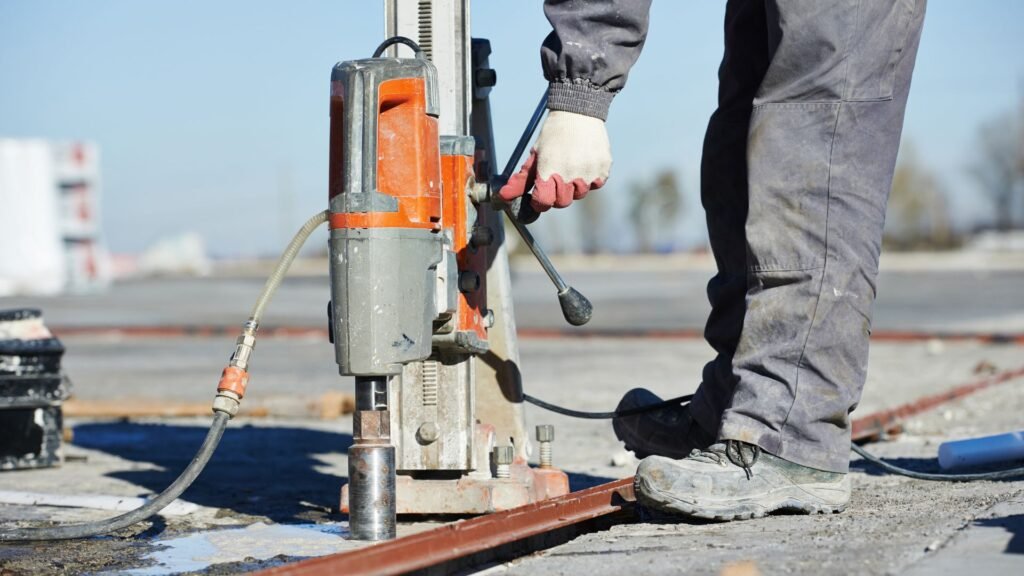
Factors That Affect Concrete Drilling Cost In NZ
When planning a concrete drilling project in New Zealand, costs can vary widely depending on several factors. Understanding these elements will help you set a realistic budget and avoid unexpected expenses. Below are the main factors that determine the final price of concrete drilling services.
Type Of Project
The type of project plays a big role in cost. A small residential job, such as drilling holes for a heat pump installation, will generally be cheaper than a large-scale commercial project. Commercial sites often require heavy machinery, strict safety measures, and more manpower, all of which add to the price.
Size And Depth Of Holes
The size and depth of the holes are key cost drivers. Small shallow holes can be completed quickly and cost less, while deeper and wider holes take more time, effort, and specialized equipment. For example, drilling a 20mm hole will be far cheaper than drilling a 150mm core hole that passes through reinforced concrete.
Type Of Concrete
The condition and type of concrete also matter. Non-reinforced concrete is easier and faster to drill, reducing labour time. Reinforced concrete, which contains steel rebar, requires advanced tools and more precise drilling methods, leading to higher costs.
Equipment And Tools Used
The tools needed for the job can influence the overall price. Small residential projects may only require handheld equipment, while industrial machines are needed for commercial sites or reinforced concrete. Larger or specialized tools usually increase the service cost.
Labour Costs In NZ
Labour rates for contractors vary depending on skill level and region. In New Zealand, hourly rates typically range from $80 to $120. The more complex the job, the more time it will take, which directly impacts the total labour cost.
Location
Where the project takes place is another important factor. Contractors in Auckland and other major cities often charge more due to higher overheads and demand. In regional areas, costs may be slightly lower, but travel fees can apply if contractors need to come from out of town.
Urgency
Urgency can significantly affect price. Booking in advance for standard service will cost less, while same-day or emergency drilling jobs usually come with higher charges. After-hours or weekend services may also include additional fees.
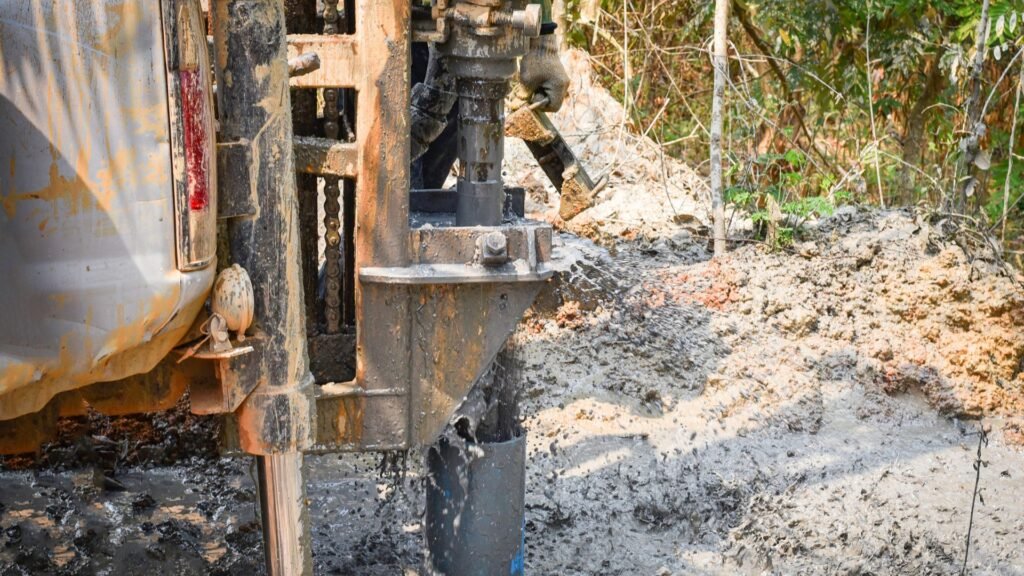
Average Concrete Drilling Cost In NZ
When planning a renovation or construction project, one of the first questions that comes to mind is how much concrete drilling will cost in New Zealand. The price is not fixed, as it depends on the size of the hole, the complexity of the work, and the region where the service is carried out. Still, there are realistic ballpark figures you can rely on to budget effectively.
- For small holes between 10–20mm, expect to pay around $30–$60 per hole. These are common for minor residential jobs, such as installing small pipes or running cables through concrete walls.
- For medium holes between 20 and 50mm, the price usually ranges from $60–$150 per hole. These sizes are often needed for home upgrades that involve plumbing, ventilation, or larger electrical work.
- For larger core drilling jobs of 100mm or more, costs can climb to $150–$300 or higher per hole. Large openings are typically required for commercial projects, foundation work, or major renovations. Because these jobs take more time and require heavy-duty equipment, the price reflects the added complexity.
- In addition to per-hole pricing, many contractors in New Zealand charge labour rates between $80–$120 per hour. Labour charges vary depending on the location, with cities like Auckland or Wellington often being more expensive than smaller towns due to higher operating costs.
Most quotes you receive will include both labour and equipment costs, so you won’t need to worry about hidden charges for the tools required. Still, it’s always best to confirm what’s covered in the estimate.
Since prices can vary widely between providers, the smartest step is to compare quotes from at least two or three local contractors. This not only ensures you get a fair rate but also gives you the opportunity to evaluate customer service, availability, and professionalism.
Concrete drilling is a service where cost transparency matters. By understanding the average rates and what influences them, you’ll be better prepared to set a budget and avoid surprises.
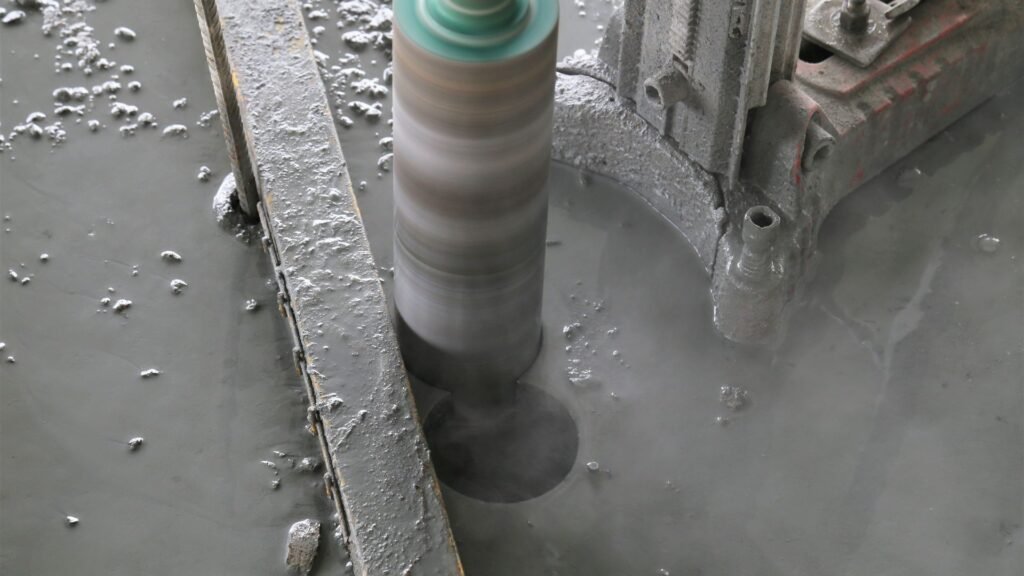
DIY Vs Hiring A Professional
When it comes to concrete drilling, one of the first decisions you’ll face is whether to handle the job yourself or call in a professional. Both options have their advantages and drawbacks, and the right choice depends on your experience, budget, and the complexity of your project.
- DIY Pros: Doing the work yourself can save money upfront, especially if you already own the necessary tools. For small, simple jobs such as drilling a few shallow holes, DIY might feel like a cost-effective solution. It also gives you complete control over the project timeline since you won’t need to wait for contractor availability.
- DIY Cons: The challenges of DIY concrete drilling often outweigh the benefits. Without proper experience, you risk damaging the concrete, creating uneven holes, or weakening structural integrity. Safety is another major concern, concrete dust and heavy equipment can be hazardous if handled incorrectly. If you don’t own the right tools, rental fees can quickly add up, reducing any cost savings. In many cases, mistakes lead to more expenses later when repairs or professional help become unavoidable.
- Professional Pros: Hiring a professional ensures the job is done correctly the first time. Contractors bring expertise, specialized equipment, and years of experience, which leads to faster and cleaner results. Safety is also better managed, as trained workers know how to minimize risks. Professionals can also provide guidance, such as recommending the best drilling method for your specific needs, which adds value beyond just the service itself.
- Professional Cons: The main drawback of hiring a contractor is the higher upfront cost. Professional rates in New Zealand can range from $80 to $120 per hour, and larger drilling jobs may require more extensive equipment, adding to the bill. Still, when weighed against the risks and potential mistakes of DIY work, this investment often makes sense.
Final Advice
For most homeowners and businesses in New Zealand, hiring a professional is the safer and more reliable choice. While DIY drilling might seem appealing for very small jobs, the risks of errors, safety issues, and unexpected costs usually outweigh the savings. Choosing a trusted contractor provides peace of mind and ensures your project is completed to a high standard.
Whether you’re planning a home renovation or a commercial project, weighing the pros and cons of DIY vs professional drilling will help you make the best choice for your budget and safety. In most cases, investing in expert help is the smarter long-term decision.
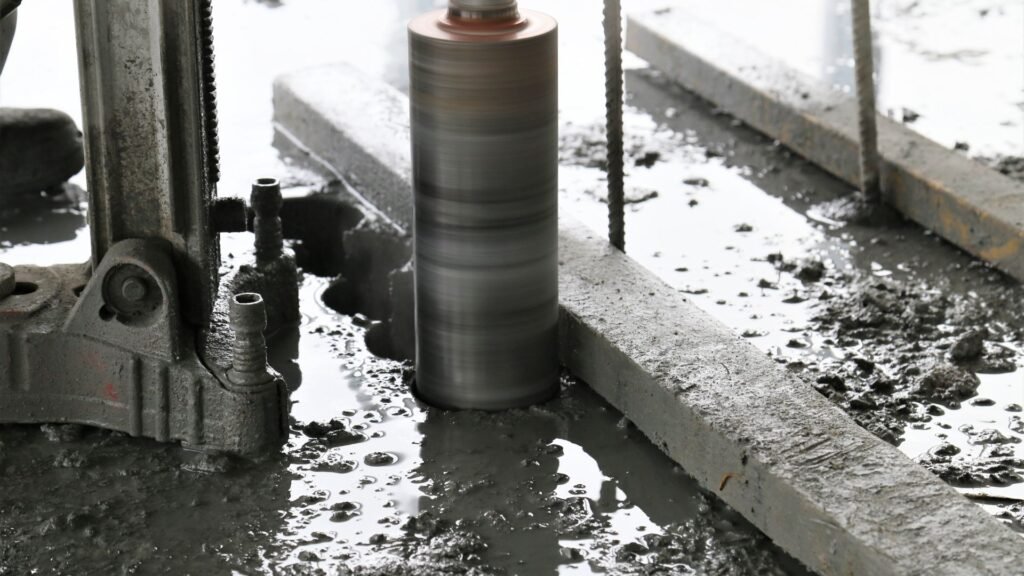
Hidden Or Extra Costs To Watch Out For
When planning a concrete drilling project in New Zealand, it’s easy to focus only on the quoted price per hole or hourly rate. But in reality, there are additional charges that can quickly add up if you don’t ask the right questions beforehand. Understanding these hidden or extra costs helps you budget accurately and avoid surprises once the work is complete.
Disposal Of Concrete Waste
Concrete drilling produces dust, slurry, and broken material that must be cleaned and disposed of properly. Some contractors include waste removal in their quotes, while others charge a separate fee. If disposal isn’t mentioned in the initial estimate, confirm whether it’s covered or if you’ll need to arrange it yourself. Handling this detail early prevents unexpected cleanup costs later.
Travel Or Call-Out Fees
If your property is located outside a contractor’s usual service area, you may face travel or call-out fees. This is common in regional New Zealand, where businesses need to cover fuel and travel time. Ask providers about their service boundaries and whether travel costs apply before confirming your booking.
Minimum Service Charges
Many companies set a minimum charge to cover their time and equipment use, even if the job itself is small. For example, if you only need one small hole drilled, you might still be billed for a set number of hours. Being aware of minimum service charges ensures you won’t be caught off guard by a higher-than-expected invoice.
Reinforced Concrete Surcharges
Drilling through reinforced concrete takes more time and specialized tools, which often results in additional fees. Reinforcement adds resistance that standard drilling equipment can’t handle as easily, so contractors typically charge a surcharge. If you’re unsure whether your project involves reinforced concrete, ask in advance so you can factor this into your budget.
After-Hours Or Urgent Service Fees
Jobs scheduled outside normal business hours or requested on short notice usually come with higher rates. Contractors may charge extra for evening, weekend, or emergency work to cover staffing and overtime. Planning ahead and booking during regular hours can help you avoid these additional costs.
By paying attention to these hidden or extra charges, you’ll have a clearer idea of the true cost of your concrete drilling project. Always request a detailed quote and ask the right questions upfront, this way, you can avoid unnecessary expenses and stay within budget.
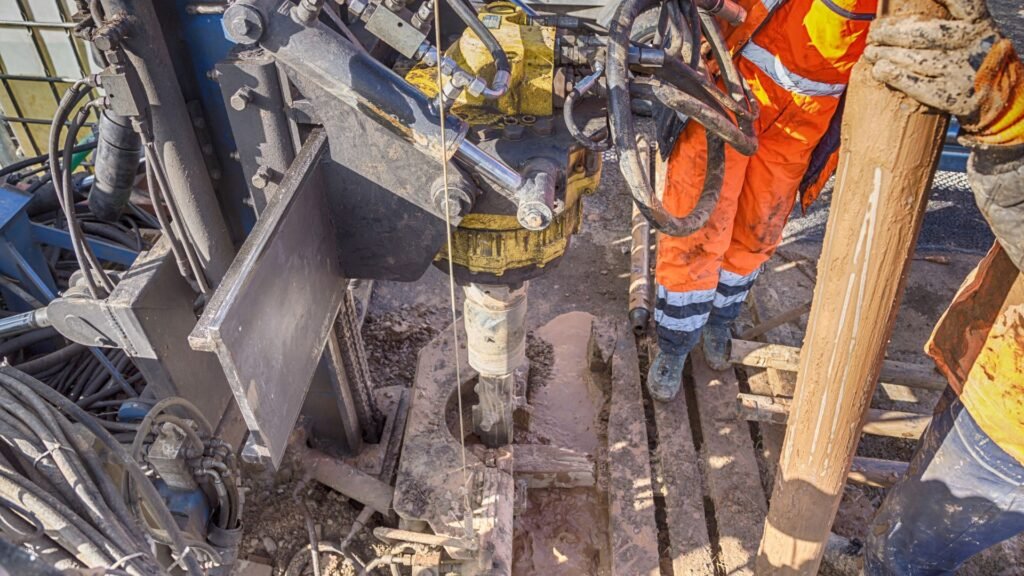
How To Choose The Right Concrete Drilling Service In NZ
Choosing the right concrete drilling service in New Zealand can make a big difference in the quality of work, the safety of your property, and the overall cost of your project. With many contractors offering drilling and cutting services, it’s important to do some homework before you decide. Below are key steps to guide you.
Check Reviews And Ratings
Start by looking at customer reviews on Google, Trade Me Services, or other local directories. Pay attention to comments about punctuality, professionalism, and quality of work. A company with consistent positive feedback is usually a safer choice. Watch out for repeated complaints, such as delays or hidden fees, as they can be red flags.
Ask For Detailed Quotes Upfront
Never settle for vague pricing. A good contractor should provide a clear written quote that outlines costs for drilling, labour, travel, and potential extras like waste removal. Transparent pricing helps you avoid surprise charges once the job is done. If the contractor hesitates to give a detailed breakdown, it may be best to move on.
Confirm If The Service Is Insured
Concrete drilling involves heavy equipment and potential risks. Always confirm that the contractor has both liability and workers’ insurance. This protects you from unexpected costs if an accident or property damage occurs during the job. Professional companies will readily provide proof of insurance when asked.
Compare 2–3 Providers Before Booking
Don’t rush into hiring the first contractor you find. Take the time to compare at least two or three providers in your area. This allows you to weigh differences in pricing, experience, and customer service. In many cases, you’ll find that rates can vary significantly, even for the same type of job.
What Questions To Ask When Calling A Contractor
Before you lock in a service, prepare a list of questions to ask over the phone:
- How long have you been offering concrete drilling services?
- What kind of equipment do you use?
- Do you charge extra for reinforced concrete or urgent jobs?
- Are disposal and clean-up included in the price?
- Can you provide references from previous clients?
Asking these questions not only gives you clarity but also helps you gauge the contractor’s professionalism and willingness to communicate openly.
Finding the right concrete drilling service in NZ doesn’t have to be stressful. By checking reviews, asking the right questions, and comparing providers, you’ll have the confidence that your project will be handled safely, efficiently, and at a fair price.
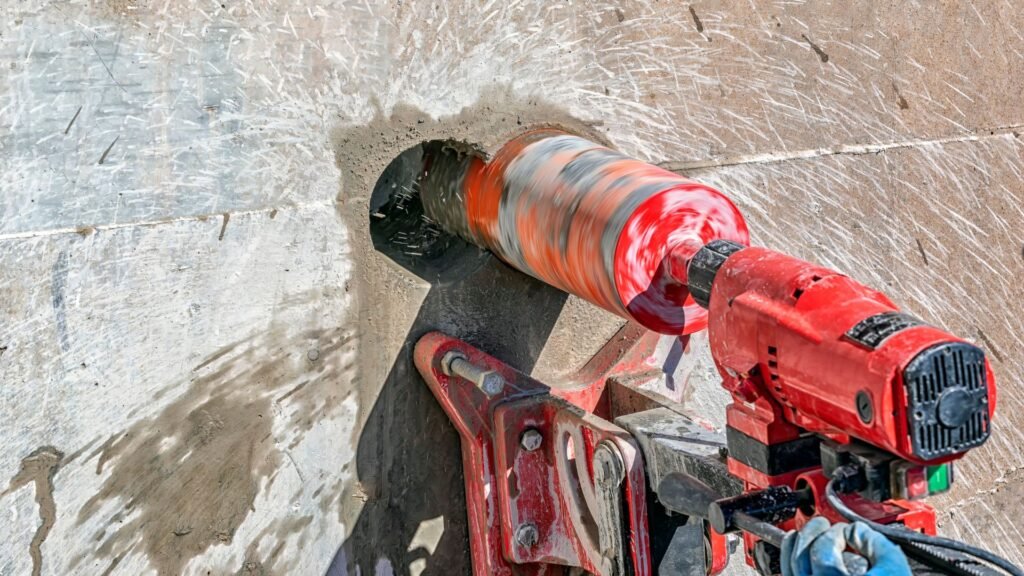
Tips To Save On Concrete Drilling Costs
When it comes to concrete drilling in New Zealand, costs can quickly add up if you are not prepared. The good news is that there are practical steps you can take to reduce expenses without compromising on quality. Below are some proven ways to make the most of your budget.
Combine Multiple Jobs Into One Service Call
If you know you will need several holes drilled, try to get them all done in a single appointment. Contractors often charge a call-out fee, and by combining jobs, you can avoid paying multiple service charges. For example, if you are renovating your home and need holes drilled for plumbing, wiring, and ventilation, scheduling them all at once can lead to significant savings.
Book During Normal Working Hours
After-hours or weekend services usually come with higher rates. Unless your project is urgent, it’s best to schedule drilling during standard business hours. Not only will you avoid premium charges, but contractors are often more flexible with scheduling when you book ahead.
Prepare The Site Beforehand To Reduce Labour Time
Time is money in concrete drilling. By preparing the site in advance, you can help the contractor get straight to work. Simple steps like clearing obstacles, marking drilling points, and ensuring easy access to power and water can reduce the time spent on site. Less labour time means a lower final bill.
Get Multiple Quotes For Comparison
Never settle for the first quote you receive. Prices for concrete drilling in NZ can vary widely between providers, so getting at least two or three quotes is a smart move. This not only helps you spot fair pricing but also gives you an opportunity to compare services, experience, and customer reviews before making a decision.
Saving on concrete drilling costs does not have to be difficult. By planning ahead, being strategic with your bookings, and comparing providers, you can keep expenses under control while still ensuring a professional and reliable outcome for your project.
Ready to get started with your project? Discover affordable and reliable concrete drilling services in NZ. Visit our homepage to request a free quote today.
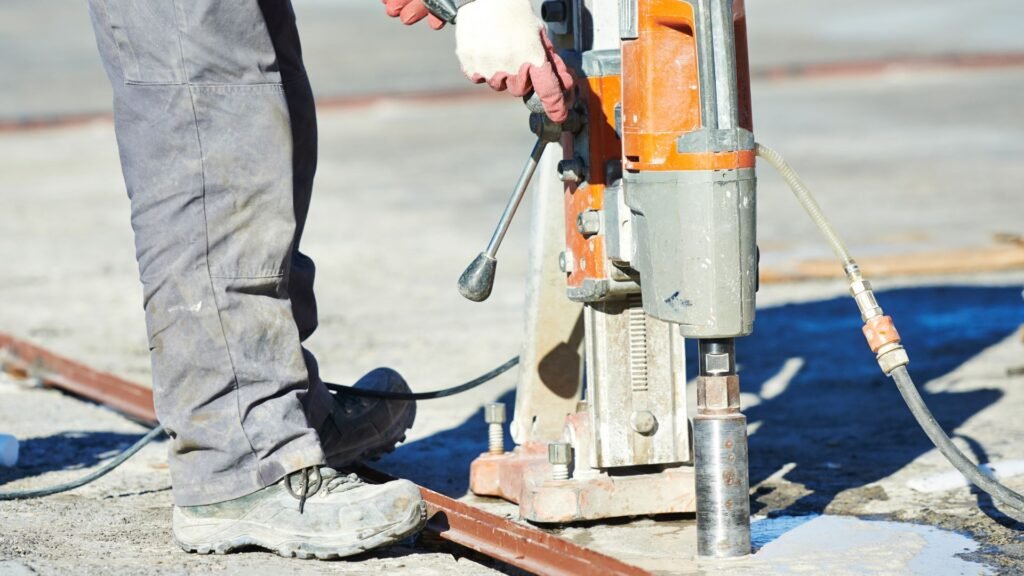
FAQs: About Concrete Drilling Cost In NZ
What is the average cost of concrete drilling in New Zealand?
The average cost varies depending on the hole size and project. Small holes (10–20mm) may cost $30–$60 each, medium holes (20–50mm) $60–$150, and larger core drilling (100mm+) $150–$300 or more. Contractors may also charge hourly rates ranging from $80–$120.
What factors affect the cost of concrete drilling in NZ?
Costs are influenced by project size, the diameter and depth of the holes, whether the concrete is reinforced, the type of equipment used, labour charges, location, and urgency of the job.
Is concrete drilling more expensive in Auckland compared to other regions?
Yes, costs in Auckland and other large cities can be slightly higher due to higher labour rates, business overheads, and travel expenses compared to smaller towns or regional areas.
Can I drill concrete myself to save money?
DIY drilling is possible if you have the right tools and safety knowledge, but it comes with risks. Equipment rental can be costly, and mistakes may cause damage. Hiring a professional is usually safer and can be more cost-effective long-term.
Do concrete drilling companies charge extra fees?
Some companies may add fees for concrete waste disposal, travel or call-out charges, reinforced concrete, and after-hours or urgent jobs. Always ask for a detailed quote upfront.
How long does concrete drilling usually take?
A simple drilling job may only take 10–30 minutes per hole, while larger or reinforced projects can take several hours. The duration depends on the number of holes, depth, and site conditions.
Does drilling into reinforced concrete cost more?
Yes, drilling through reinforced concrete typically costs more because it requires stronger tools, more time, and additional safety precautions.
How can I save money on concrete drilling in NZ?
You can reduce costs by booking during standard work hours, preparing the site in advance, combining multiple jobs into one service call, and comparing quotes from at least two or three providers.
Is concrete drilling safe for my property’s structure?
When performed by professionals, concrete drilling is safe and precise. They use specialized tools to prevent cracks and ensure the structure remains intact. Improper DIY drilling, however, can damage walls, floors, or foundations.
How do I choose the right concrete drilling contractor?
Check online reviews, ask for detailed quotes, confirm insurance coverage, and compare multiple providers. Look for contractors with experience in similar projects and good customer feedback.
Conclusion
Concrete drilling cost in NZ can feel overwhelming at first, but with the right planning, it’s a service that remains affordable and practical for most projects. By understanding the main factors that influence pricing, such as hole size, concrete type, and labour rates, you can budget more effectively and avoid unexpected expenses. The smartest approach is to compare multiple quotes from local contractors, ask clear questions about additional fees, and check reviews to ensure you’re hiring a reliable professional. This way, you not only secure a fair price but also gain peace of mind knowing the job will be done safely and correctly. If you’re planning a project, start by contacting a trusted drilling service near you to get an accurate estimate and move forward with confidence.

